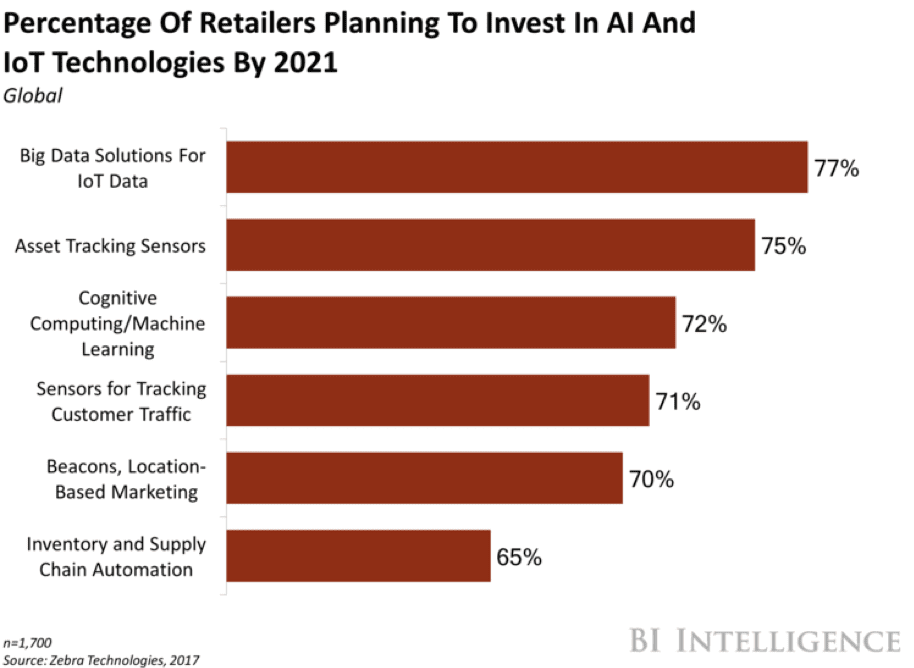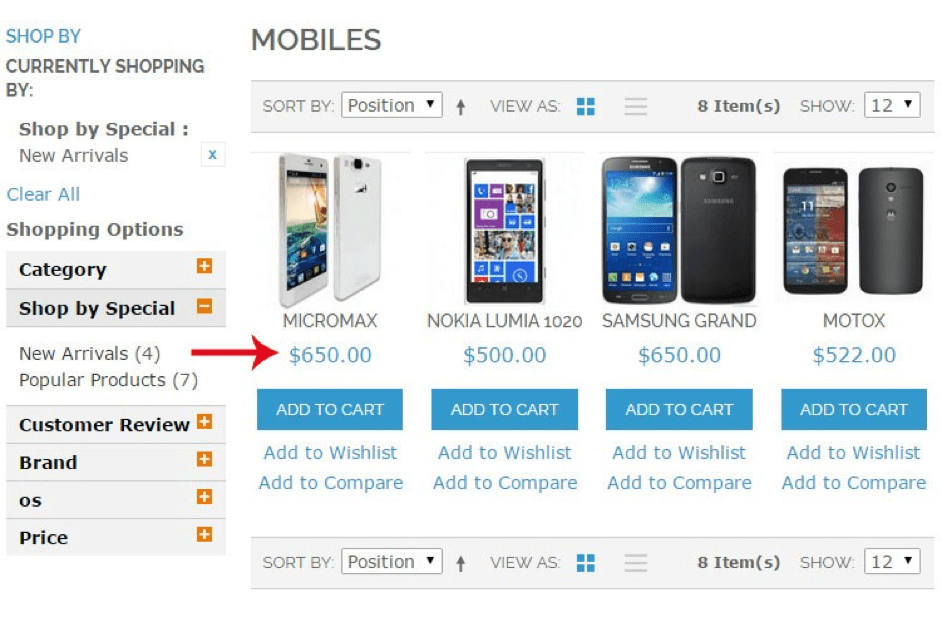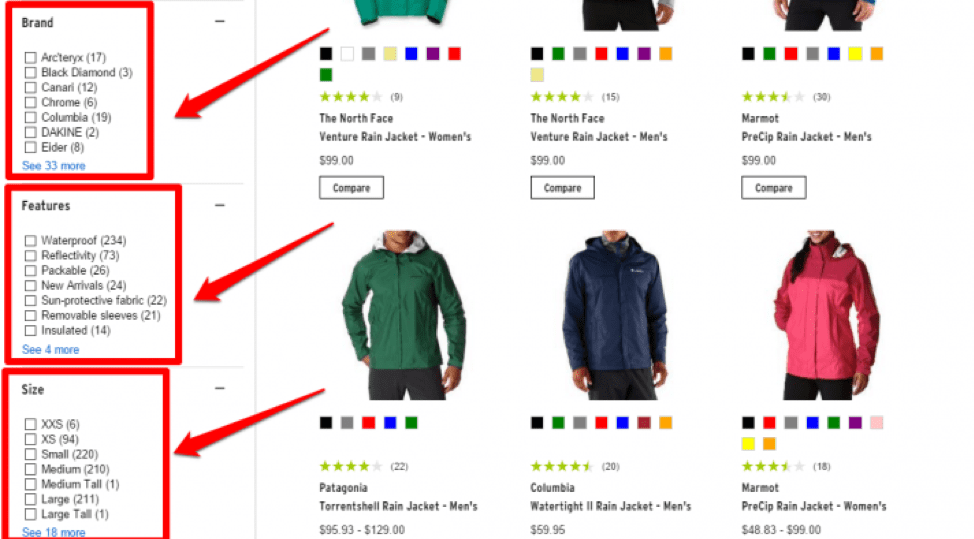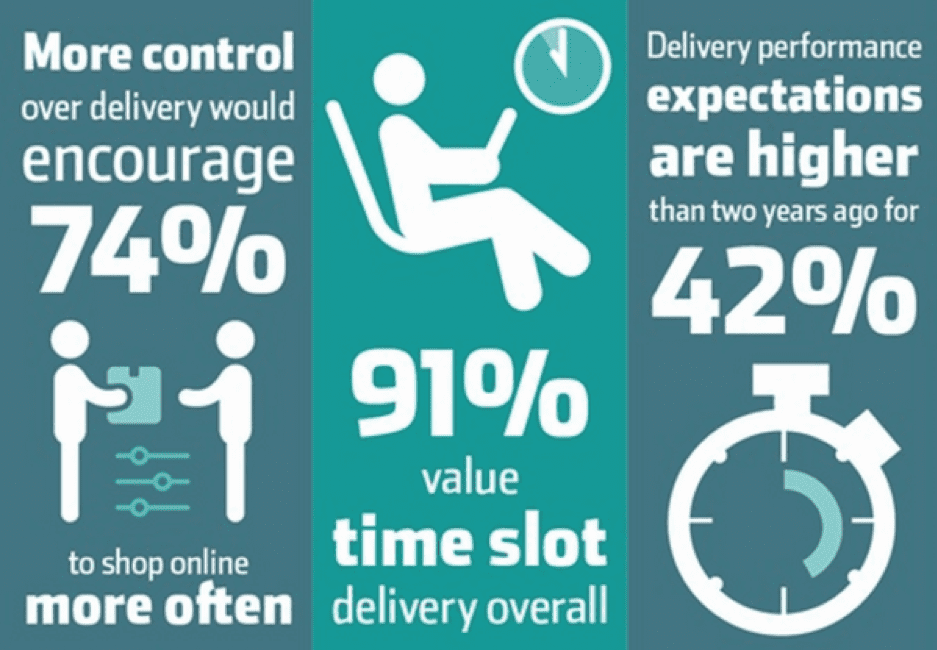Online retailers today have a brilliant opportunity to leverage these new technological trends and boost their business
The blinding pace at which digital landscape is growing is impacting every aspect of businesses. With the emergence of data analytics and innovative technologies, the e-commerce industry is gaining a solid ground to deliver better customer experiences. Online retailers today have a brilliant opportunity to leverage these new technological trends and boost their business.
The successful strategies in the e-commerce industry are developed primarily based on how customers shop, what they buy and how they respond to technologies employed by businesses. According to a report by Statista, global retail e-commerce sales are expected to reach $4.8 trillion by 2021.
Download our Premium Resource – Practical e-commerce merchandising advice
Online selling, or 'digital merchandising', is the art and tactics of getting more of your digital store's visitors to interact with your brand, add items to their basket, and eventually buy them. Our guide takes you through the essential practices of e-commerce merchandising to help you connect your shoppers with the right product.
Access the Practical e-commerce merchandising advice
If you want to stand out among your competitors, now is the time to step up your game. The following strategies will help to put you at an advantage.
1. Interactive Product Visualization
As opposed to physical shopping, online shopping is intangible and needs a lot of guesswork on the part of customers. So, in 2019, product visualization is one of the best strategies for you to present your products to your consumers.
It will help them study every detail of a product, which in turn will enable them to make an informed decision without regretting it afterward - helping you avoid complaints and negative reviews.
For example, the recent addition of zoom option on various e-commerce sites has been a great help for businesses and consumers alike. It allows consumers to zoom in on certain details and get a better understanding of the item without actually touching it.

As well as a zoom feature, you should include more product demo videos that show your products in action. According to a research report provided by Invodo, 52% of consumers say that watching product videos makes them more confident in their online purchase decisions. The fact is videos show all the aspects of your products’ potential. Consumers want to see how a product works but also to make sure it looks the way they expect.
Another powerful option is to use 3D experience for your consumers. An interactive 3D representation can be extremely handy for customers to process product features. 3D product imaging will not only increase customer engagement, but it could significantly boost conversion rates.
2. Artificial Intelligence (AI)
Artificial intelligence is no longer an alien concept, neither is it a territory that can’t be harnessed for usual practical purposes. That said, AI is everywhere and is gradually embedding itself into each and every aspect of our life. From smart homes to e-learning, to healthcare and finance, AI is making its presence felt in a profound manner. E-commerce is another highly appropriate domain where AI can make a significant impact.
Today, business decision making has become more data-driven and there is an ever-increasing demand for measurable metrics. For example, conversion rate, bounce rate, website traffic, engagement rate, etc. are extremely important factors for online marketers.
This is where AI tools can be of considerable help for you. They enable you to gather as well as investigate data in real-time and track the way potential customers interact with your brand. AI facilitates better efficiency and competence.

You can effectively analyze customer behaviour on your website by using algorithms to predict what products may appeal to your prospects and provide recommendations. Machine learning algorithms can be applied to automate your logistics and warehouse operations.
The study of historical data, data analytics, and latest trends can help in optimizing the resource allocation, build a healthy pipeline and analyze the team performance.
3. Advance Product Filtering
As the world is steadily moving into the future, people seem to be busier. So at a stage when leisure appears to be a luxury, consumers want to save every bit of their time and shop up front.
The advanced filter functionality allows your customers to find exactly what they're looking for quickly and easily. It can be even more useful if you are selling a lot of variations of the same types of products with many different options.
In 2019, product filters are a must-have element for your online storefront. Sadly, 42% of major e-commerce sites do not have category-specific filtering types for some of their product verticals.


The advanced filtering mechanism enables customers to sort through a complex array of product options. In fact, customers who can’t find what they are looking for within a few seconds are more likely to bounce from your site.
If you are a clothing store, advance filters will help users spot a specific colour, size, style and material. There can be many ways to use filters in your online store, such as theme-based, price, best-selling, user ratings, etc. You should put as many specific product attributes as possible as a category filter. It’s a good way to remind your customers that these attributes are crucial to their selection process.
4. Chatbots
Technically a part of AI, chatbots can be an important weapon for e-commerce companies when it comes to enhancing customer experience. You can use chatbots to instantly communicate with customers and resolve their issues on multiple platforms, such as Facebook or your online store.
A chatbot is basically a computer program that simulates a conversation with a human user with an intent to furnish some kind of service. Some chatbots are so advanced, it is really hard to distinguish them from chatting with a real human.

A live chatbot will offer your consumers a highly personalized experience. It can effectively guide them down the sales funnel by influencing their purchasing decisions. You can include the whole range of product and process knowledge for your customers who have questions and concerns on the way to the checkout page. You can also program chatbots to fetch data from email marketing campaigns, upsell and cross-sell products, offer discounts codes, and so on.
In addition to interacting with customers, live chatbots can help you manage and track your inventory, thereby letting you know you are running out of certain best-selling items in your online store. They can also let your customers know that the product they were looking for is back in stock.
5. More Delivery Options
As an important aspect of e-commerce business, delivery has to be fast, convenient and timely if you want to stay ahead in the competition in 2019. In fact, shipping is one of the key differentiators between many online competitors.
With the exponential boom in the e-commerce sector, online shoppers have demands and needs that they want addressed more quickly, which will shape delivery options. Amazon is testing drones for package delivery in countries like England and Australia; while Mercato, an online grocery store, is connecting consumers to vendors and merchants in their community, making it easier, faster and more convenient than ever to get the best food delivered.

Speed and efficiency are going to be the hallmarks of e-commerce business in the future. Consumers are even demanding same-day delivery service, so it’s a good time to optimize your supply chain. In terms of innovation in the delivery system, again Amazon is at the forefront in experimenting with in-home delivery using smart locks. The idea is when a delivery person is at the door the consumer receives a notification, after which they can remotely unlock their smart-lock to allow the delivery person access.
Conclusion
The e-commerce landscape is evolving. This means that the industry will get bigger and better in the coming years and new technological trends will make it more seamless.
As a growing e-commerce business owner, you need to keep a track of these technologies and find ways to use the ones that best suit your needs. The above strategies will provide a better value to your users and make your business more successful in 2019 and beyond.
Smith Willas is a freelance writer, blogger, and digital media journalist. He has a management degree in Supply Chain & Operations Management and Marketing and boasts a wide-ranging background in digital media.














